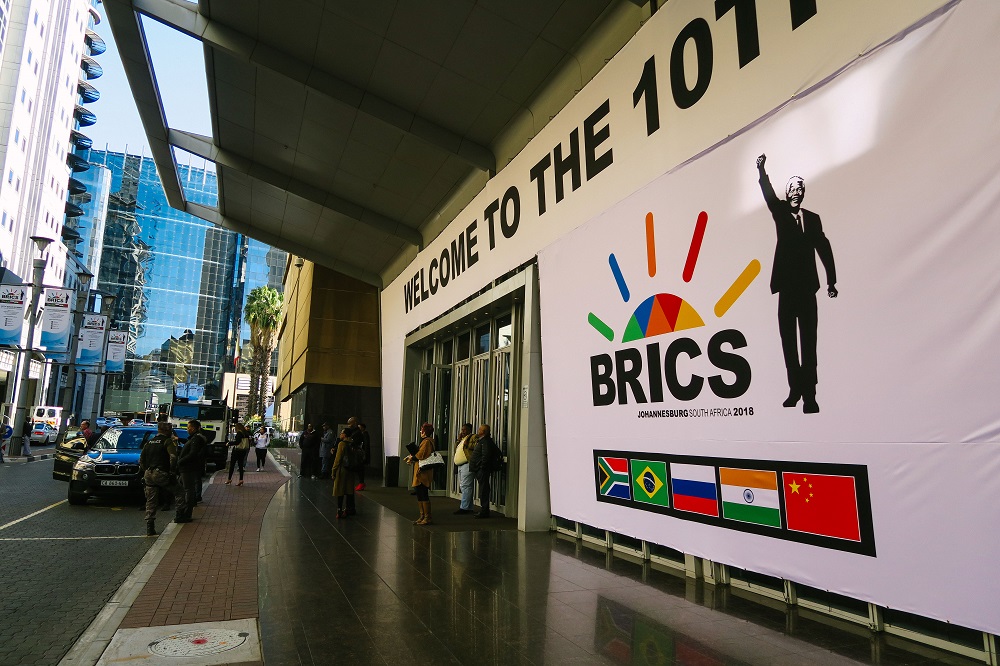
The 10th BRICS summit is being held at the Sandton Convention Center in Johannesburg, South Africa on July 25-27. (Photo: Global Times)
Johannesburg (People’s Daily) – The alliance of BRICS, which groups Brazil, Russia, India, China and South Africa, has become a distinct global brand in its own rights, said host country South Africa’s national marketing agency during the ongoing summit.
After entering the 21st century, the BRICS nations have become advocates of free trade and of globalization, promoters of protection for the environment in light of global climate challenges, said Petrus de Kock, general manager for Research with Brand South Africa.
"The development of the BRICS brand takes place in a post-global financial crisis world characterized by growing protectionism, trade wars and turbulent political change," he said.
In a research report entitled, “The BRICS Brand: from economic concept to institution of global governance,” Brand South Africa examined whether the BRICS alliance could be approached or analyzed as an emerging institution of global governance.
The research explored how the increased formalization of intra- and inter-BRICS interactions, the establishment of institutions such as the BRICS New Development Bank and increased interaction on platforms such as the Business Council and Think Tank structures, also lead to the development of the BRICS’ collective image.
The developments in the global economy and geopolitical environments play a major role in driving the search for strengthened, deepened and institutionalized BRICS interactions.
“BRICS nations have been bucking these global trends of anti-globalization and counter-integrationist discourses and as a result, have anchored their own economies through the BRICS partnerships," said the manager.
Between 2009 and 2017, the five BRICS countries had made a total of 406 commitments and implemented 70 percent of decisions made at annual summits, according to the report.
The BRICS Research Group found that there have been more than 160 formal meetings between members and 60 documents that were implemented through working groups and coordination mechanisms.
Praising highly of the results, he said the research had disproved what sceptics argued, that due to the diverse nature of the member states’ internal composition, and geopolitical and economic policy objectives, the organization would find it hard to cohere and develop.
The geographic and internal diversity of the member states are actually an asset that has served to strengthen cooperation while simultaneously increasing the soft power impact of the member states, said the report.
The BRICS countries connect 42 percent of the world’s population and are establishing new institutions and hosting conversations to create a world where “bricks are there to build bridges of mutual understanding, and not create walls of division, conflict, exploitation, nationalism, prejudice, and exclusion,” noted De Kock.
South Africa is hosting the 10th BRICS summit in Johannesburg from July 25 - 27 against the backdrop of trade wars between the US and China, Canada, Mexico and the European Union over tariffs which has also hit developing countries.
(Compiled by Jiang Zhuqing)


